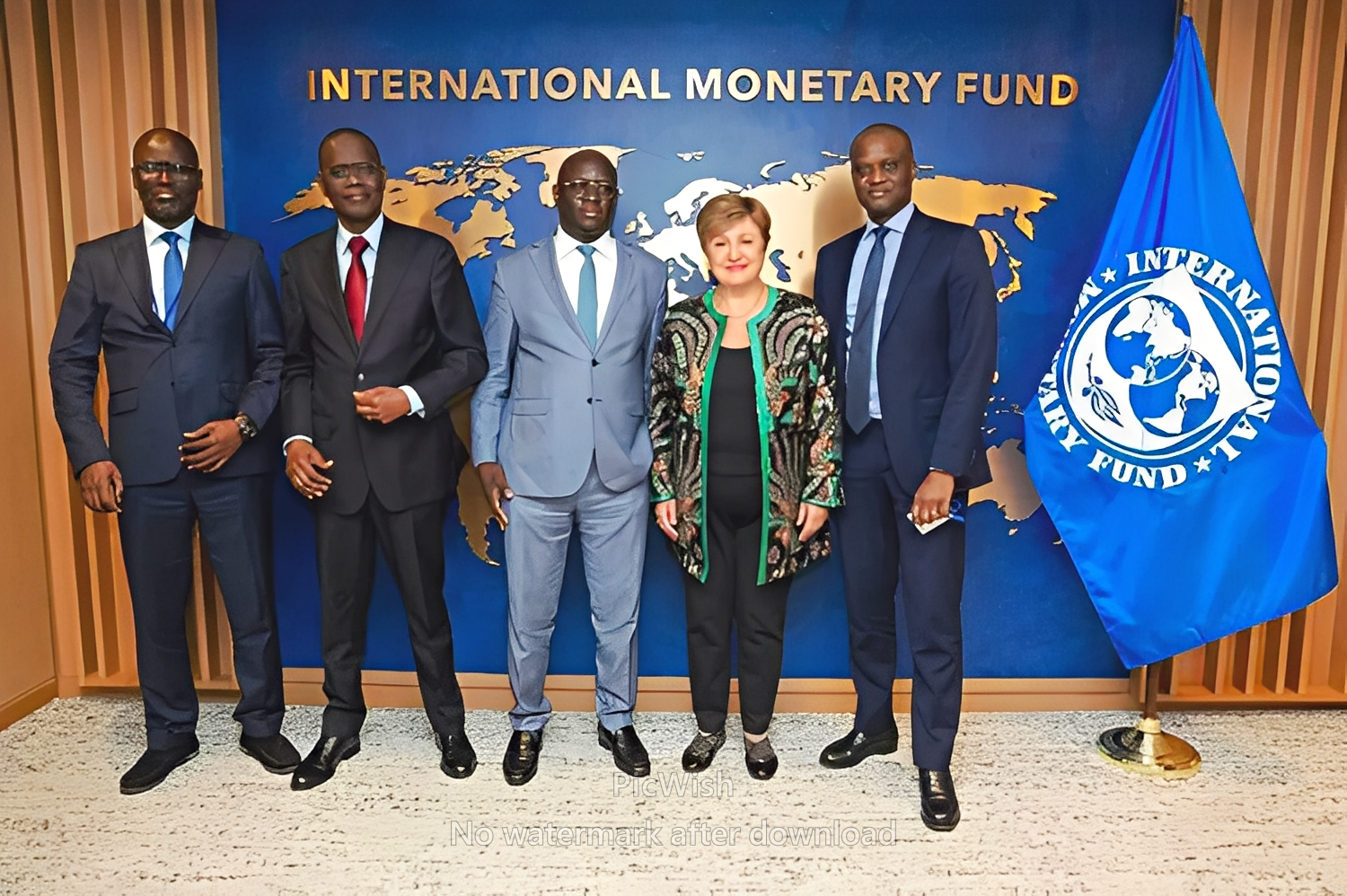Gambiaj.com – (DAKAR, Senegal) – Appearances may have been warm at the IMF and World Bank annual meetings in Washington this month, but behind the smiles shared by IMF Managing Director Kristalina Georgieva and Senegal’s delegation, negotiations over the country’s finances are proving far more fraught than the photo opportunities suggest.
According to Jeune Afrique, the discussions between the IMF and Senegalese officials—including Finance Minister Cheikh Diba, Economy Minister Abdourahmane Sarr, and Agriculture Minister Mabouba Diagne—remain overshadowed by the revelation of a far deeper debt crisis than previously disclosed.
An audit conducted by Mazars earlier this year found Senegal’s public debt had reached 118.8% of GDP by the end of 2024, far above the 74.41% reported under former President Macky Sall.
The discovery of over €10.5 billion in “hidden debt”—a figure now accepted by both the IMF and Dakar—prompted the suspension of a $1.8 billion IMF program and led to two successive sovereign rating downgrades.
While the Senegalese government is eager to secure a new program quickly, the IMF has warned that any restructuring will be complex and time-consuming, citing Ghana and Zambia as examples of prolonged processes. “Restructuring is a painful process that requires sacrifices and austerity,” an IMF source told Jeune Afrique.
Austerity on the Horizon
Talks are already outlining the contours of an adjustment plan. IMF mission chief Edward Gemayel confirmed that negotiations began in Washington and will continue in Dakar this week.
Measures under consideration include phasing out tax exemptions, which currently cost the equivalent of over 7% of GDP, raising taxes on gambling, and gradually removing energy subsidies while expanding direct transfers to the poorest households to cushion the impact.
However, the IMF has also warned that Senegal may need to suspend most investment spending—a blow to President Bassirou Diomaye Faye’s flagship “Vision 2050” development agenda, which risks being delayed for years.
Political and Economic Dilemmas
The stakes are as political as they are financial. Faye’s administration, elected in March 2024 on promises of reform and a clean break from the Sall era, now faces the prospect of implementing austerity policies that could test its electoral base.
Still, IMF Africa Director Abebe Selassie struck a cautiously constructive tone, stressing the importance of aligning Senegal’s priorities with realistic financing capacities.
“The most important thing is to understand what the government wants, what their priorities are, and their financing capacity, and from there we can determine their needs and the reforms we can implement,” he said.
Edward Gemayel acknowledged the strain caused by the 17-month program suspension but praised Senegal’s resilience.
He emphasized that transparency and trust will be essential in moving forward: “Everyone must take their share of responsibility, and the IMF is not exempt. Trust must be restored to build a lasting and useful relationship with Senegal.”
For now, optimism is carefully balanced with caution. While both sides signal a shared desire to relaunch cooperation, the road ahead is marked by painful trade-offs and the challenge of reconciling economic necessity with political reality.










